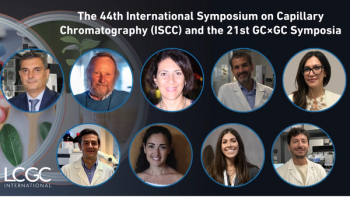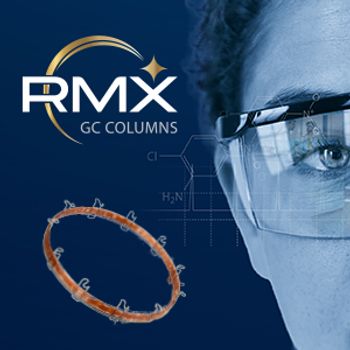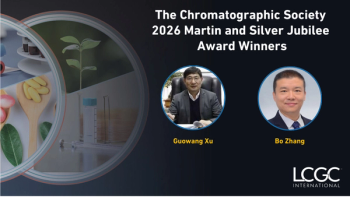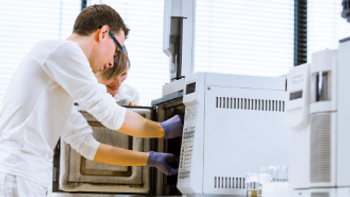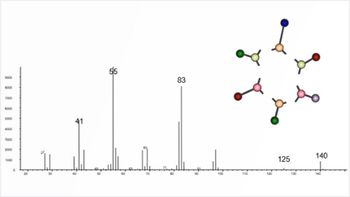
- February 2024
- Volume 20
- Issue 2
- Pages: 19–20
Event Preview: HTC-18
The 18th International Symposium on Hyphenated Techniques in Chromatography and Separation Technology will take place from 28–31 May 2024 in Leuven, Belgium.
The 18th International Symposium on Hyphenated Techniques in Chromatography and Separation Technology (HTC-18) will be held from 28–31 May 2024 in Leuven, Belgium.
The 18th International Symposium on Hyphenated Techniques in Chromatography and Separation Technology (HTC-18), taking place this year from 28–31 May 2024 in Leuven, Belgium, continues a series that started in 1990 and is firmly established as a unique meeting place for scientists and practitioners from academia and industry to exchange state-of-the-art knowledge, and gather new insights and ideas covering all aspects of chromatography and separation techniques, sample preparation, detection, and data handling. Organized under the auspices of Ghent University (UGhent), the University of Leuven (KU Leuven), the Vrije Universiteit Brussel (VUB), and the Royal Society of Chemistry (RSC), HTC-18 is expected to gather over 250 participants.
The conference will encompass parallel sessions consisting of plenary lectures, keynote lectures, tutorials, and oral presentations. The symposium will also host an attractive technical exhibition where vendors will present their newest instruments and developments, topped with technical seminars.
Techniques to be covered include the fundamental and practical aspects of liquid (LC) and gas chromatography (GC), including multidimensional LC, multidimensional GC, supercritical fluid chromatography (SFC), LC–mass spectrometry (MS), and GC–MS. The programme will also include topics such as automated sample preparation, online analyzers and sensors, electro-driven separations, ion‑mobility and native mass spectrometry, emerging detectors and separation modes, method development and artificial intelligence, column technology and stationary‑phase developments, system design and optimization, miniaturization, lab-on-a-chip, 3D printing, and data processing, mining, and curation. The symposium will also address bottlenecks and describe trends and new technologies for a wide range of applications, including (bio-) pharmaceuticals, medical diagnostics and clinical applications, forensic analysis and doping control, food analysis and safety, environmental analysis, energy, green approaches, high-throughput analysis, -omics (lipidomics, metabolomics, proteomics), and biomarker discovery, as well as modern industrial applications and natural products.
As always, there will be abundant networking opportunities during the conference, with a welcome reception in the University Hall, an informal Belgian beer and food tasting event at the conference venue, the conference dinner in the Great Beguinage, which dates from the 13th century and is listed as UNESCO world heritage, and lots of dissemination activities.
A number of awards will be presented at HTC‑18. The HTC Innovation Award, sponsored by LCGC International, will be offered to a researcher with fewer than 15 years’ experience after obtaining his or her PhD for “a pioneering contribution to the field of separation sciences by introducing new methodologies, new instrumentation, or new techniques in the field, with a strong focus on applicability”. The most innovative oral contribution presented during the conference will receive the HTC‑Award. The most innovative poster contributions will receive the HTC-Poster Award. The HTC Academy Contest will also be organised for young scientists, sponsored by the Journal of Chromatography A and Journal of Chromatography Open.
Participants are invited to register and submit abstracts for review using the abstract submission menu available on the website:
The organisers look very much forward to welcoming you in the historic centre of Leuven!
E-mail:
Articles in this issue
almost 2 years ago
Analysis of Accutrace Plus Marker in Fuels with GC–MSalmost 2 years ago
Calibrating the Low Molar Mass Range in GPC/SEC Using Oligomer Peaksalmost 2 years ago
Knauer Founder, Herbert Knauer, Dies at 92almost 2 years ago
LCGC International Expands News Coveragealmost 2 years ago
TD-GC×GC–TOF-MS Identifies VOCs in Skin as Tuberculosis Biomarkersalmost 2 years ago
Cal State and Leco Launch Chemical Analysis Laboratoryalmost 2 years ago
Vol 20 No 2 The Column February 2024 North America PDFalmost 2 years ago
Vol 20 No 2 The Column February 2024 Europe PDFNewsletter
Join the global community of analytical scientists who trust LCGC for insights on the latest techniques, trends, and expert solutions in chromatography.

